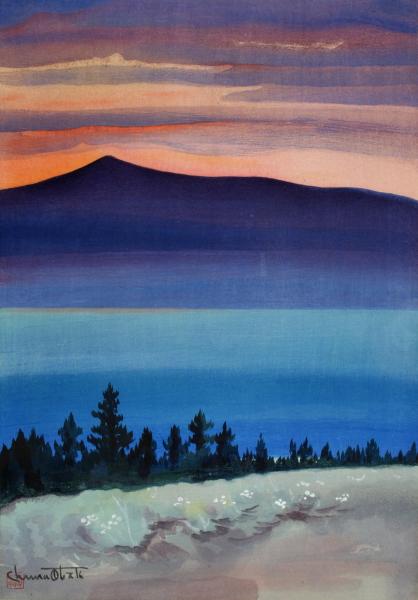
[Another family, on of four, in the longer manuscript.]
In midwinter, when things on the Boal farm were quiet, both Saturday and Sunday, were days of rest. Saturdays were for errands and excursions; Sundays, prayer and planning. On this Saturday morning, while David, accompanied by the boys, was picking up a couple dozen 10-penny nails for a barn rehabilitation project he had been looking forward to, Cordelia was at the post office, collecting their mail, such as it was.
Cordelia, nearly always unfailing polite, made a point of being particularly kind to the local postmaster once her brother Cochran took a similar position in New Buffalo. “I do so appreciate your work,” she said as she collected her mail, a single letter bearing two 3-cent stamps bearing a porcelain-like visage of George Washington in profile, a Topeka postmark from late January, and Jane Boal Thompson’s distinctive cursive. David’s sister was a far more reliable correspondent than either of Cordelia’s brothers.
***
Upon their return home, Cordelia put a kettle on the boil. It was her ritual, opening the mail with a cup of hot tea. In her chair in the parlor, she slid the letter opener under the flap of the flimsy, well-traveled envelope.
My dearest David and Cordelia, the letter began.
Reading the first paragraph, Cordelia shrieked. “Oh my goodness!” The letter opener dropped to the ground, clattering as it hit the wide-planked floor. The kitchen vibrated from the whistle of the tea kettle whistle.
Unsure of what had happened to his wife, David Boal bolted upstairs from the cellar, leaving his three sons at his workbench.
“What is it? Cordelia, are you all right?” David called from the top of the stairs.
Cordelia, regaining her composure, announced, “Jane has had a baby, a girl.”
“What!” David was now standing in the doorway. Neither David nor Cordelia had been told that Jane had been expecting. It hadn’t been mentioned in any of her letters.
“Are mother and daughter okay?”
“Jane says the delivery was the easiest one she’s known. Henrietta – that’s the baby’s name – is a little sprite. At least she was in January. Pray God, she still is. Her letter was written in her own hand, not more than a week after the birth.” Cordelia inhaled. “As you well know, I was scarcely able to breathe after our little ones entered the world.”
“Indeed,” David nodded. “Well, isn’t this something?” David was surprised on so many levels. He and Jane –the Boals among Thompsons – had been so close; they shared everything. And now his sister had delivered a baby – this Henrietta – who he had known nothing about. He had been nearly certain that Jane and her family would return to Pennsylvania, that their Kansas move wouldn’t take. He was wrong.
“Good for her. Good for them.” David heard his wife prattle on. “I’m desperate to see her. I can imagine darling Henrietta with a big curl on her forehead. Like the others. You don’t suppose they’ll return home for a visit, do you?”
They are never coming back, thought David Boal. “I’m not so sure,” he said
From the start, Jane’s husband Thomas had been seduced by Wall Thompson’s fanciful dispatches from “The Garden of the West” as he called it in his infrequent letters. Wall had been gone nearly three years now and he had firmly taken root in Kansas soil. At first, he assisted Cousin Edward in a “foolproof enterprise” on his ranch on the Little Arkansas River, just above the new cow town of Wichita. Now that the Atchison, Topeka & Santa Fe Railway had pushed south and west, Edward’s well-watered spread was ideally situated. He was able to offer “wily cowboys” a reasonable sum for their longhorn cattle that had fattened up on the grasslands of the plains in their month’s-long drive north on the Chisholm Trail from Texas through Indian Territory and into Kansas. Within the week – “often sooner” – Edward had sold those heads to moneyed interests in the Middle West, locking in a profit when he drove those bellowing steer into empty stock cars of trains headed eastbound to stockyards in Kansas City and Chicago.
Wall had started his own business – a general store – where those Texas cowboys, flush with cash, purchased items for their return trips south. He said he was also playing a role in establishing a new county. How was something like that even possible? There had been county governments in these hills since Pennsylvania was a colony.
[Scene moves on to explain how Jane and her husband made the decision to move to Kansas.]
